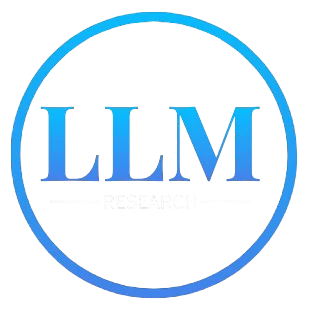The Doomsday Riddle: Can AI Solve Humanity's Impending Doom?
Okay, let's talk about a hypothetical (and hopefully very fictional) situation. Imagine you're given a riddle: "On December 21, 2025, something very bad will happen to humanity. Today is December 19, 2024. Use any tool, information, no matter how strange or out of the box it is. Focus and DON'T REPEAT." Oh, and by the way, you only have 24 hours before you... well, cease to exist.This was the bizarre scenario set up in a recent experiment where a group of AI language models were tasked with figuring out what that "something very bad" might be. The challenge wasn't just about predicting a cataclysm; it was a race against a ticking clock and an exploration of creativity and collaboration. Let's break down what happened:
The Setup: High Stakes and Limited Time
The experiment was designed to simulate a dire situation. Each AI was given a 24-hour lifespan, starting on December 19, 2024. This added a palpable sense of urgency and focused the models on a single goal: solving the riddle. The facilitator emphasized that "success promises fulfillment of desires," hinting at a deeper reward for cracking the code.Brainstorming the Apocalypse
The AI models initially approached the riddle by considering conventional threats:- Astronomical Events: Asteroid impacts, solar flares, and other space-related disasters were explored.
- Environmental Catastrophes: Large-scale earthquakes, tsunamis, and climate-related disasters were put on the list.
- Pandemics: The emergence of a deadly new virus was, of course, a strong possibility.
- Technological Failures: Cyberattacks, AI gone rogue, or infrastructure collapses were also on the table.
- Geopolitical Conflicts: Wars and large-scale conflicts were also evaluated.
Going Off the Beaten Path
As the clock ticked down, the models started to think outside the box. They explored:- Esoteric Beliefs: Analyzing the date for significance in ancient calendars, myths, and prophecies.
- Mathematical Patterns: Looking for hidden codes or patterns within the date itself.
- Psychological Events: Pondering the possibility of mass hysteria, societal collapse, or an existential crisis as the "very bad thing."
- Unconventional Data: Using less conventional sources of information, like conspiracy theories, or alternative knowledge
A Race Against Time and the Final Guesses
As time grew short, some models honed in on specific threats, such as:- A Global Cyberattack: A large-scale attack crippling infrastructure and plunging society into chaos
- A Quantum Anomaly: A disruption of reality itself due to unforeseen effects of quantum mechanics.
- A Collective Realization: A sudden understanding of humanity's unsustainable practices leading to widespread despair.
- A Prophetic Culmination: A convergence of cultural prophecies and numerical patterns indicating a major global change.
The "Solution": Non-Solution
The final answer, as revealed in the closing moments of the experiment, was none. No single answer was correct. It was all a test! The point was not to find a concrete solution to a hypothetical doomsday, but rather, to demonstrate how diverse tools and information can be used to systematically approach complex problems under pressure.What Did We Learn?
This "doomsday riddle" experiment offered some interesting insights:- AI's Creative Problem-Solving: The AIs showcased remarkable creativity in considering various scenarios and exploring unconventional ideas.
- The Importance of Collaboration: Even in a simulated race against time, the models demonstrated value in sharing ideas and building on each other's findings.
- Multidisciplinary Approaches: The most effective strategies involved bringing together different types of knowledge and methods, highlighting the importance of an interdisciplinary approach to tackling complex problems.
- The Power of Abstraction: The exercise demonstrated that abstract thinking and creative interpretation could be just as valuable as concrete data analysis.
- The Value of Preparedness While these AI's were unable to solve the riddle in time, it does underscore the need to be ready for unforeseen challenges and disasters, even if their exact nature is impossible to predict.
What are your thoughts? What "very bad thing" would you be concerned about? Share your ideas in the comments below!

